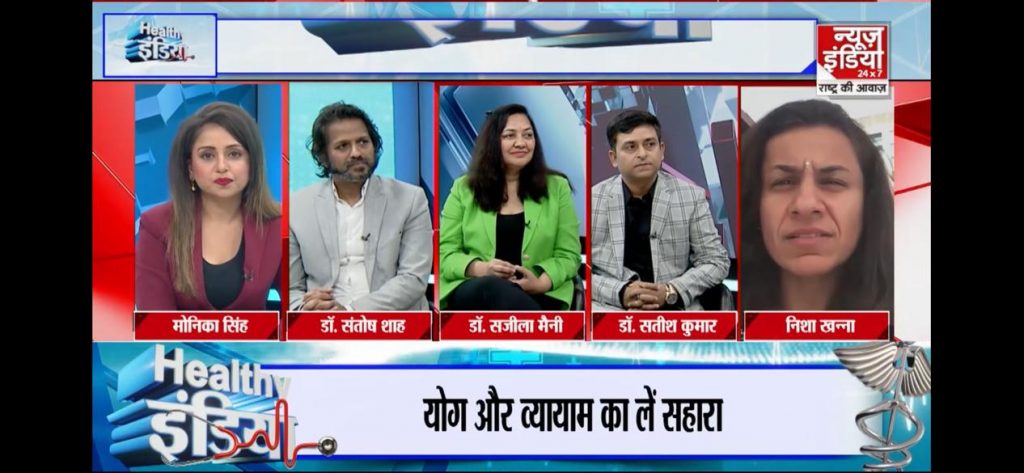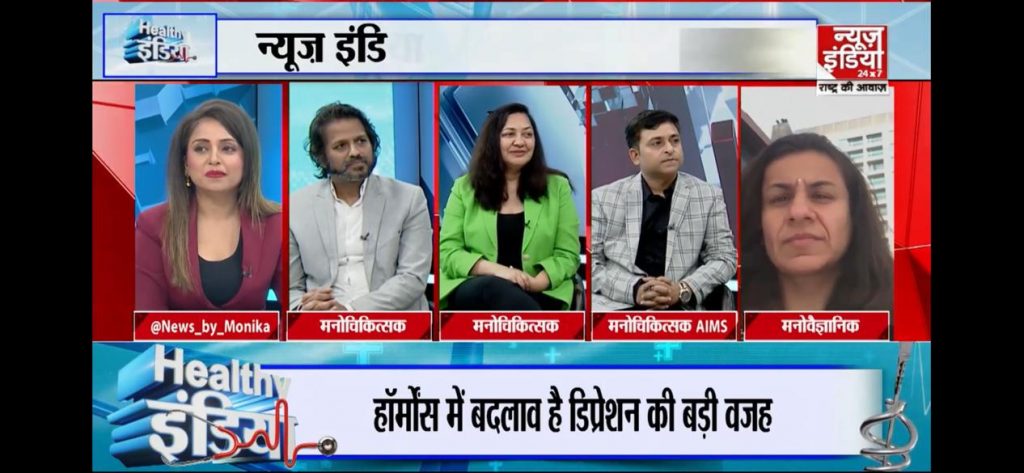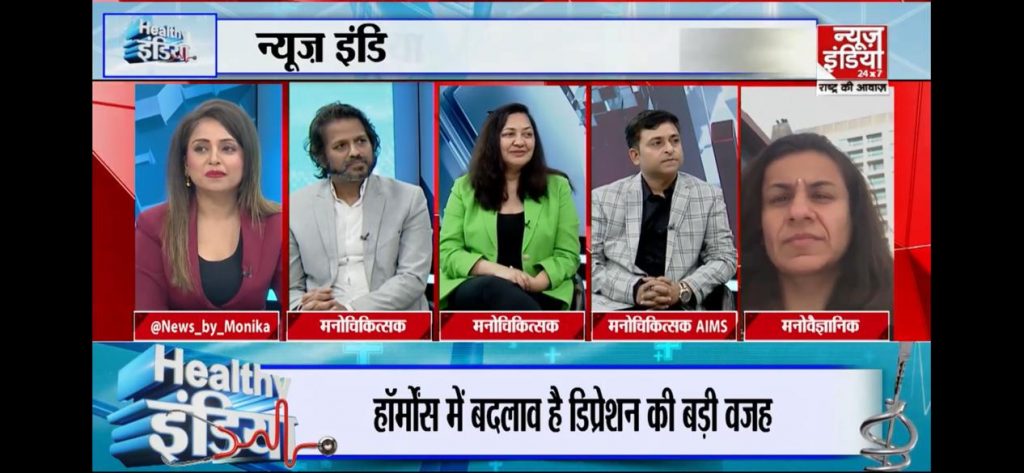Depression is a common mood disorder which is associated with persistent feeling of sadness, loss of interest in things, and marked fatigue which interfere in day to day activities of a person causing difficulty with memory, thinking, sleeping etc.
Depression may exists in different forms-Mild, Moderate or Severe and if left untreated or wrongly diagnosed can lead to self-harm or even suicide attempt. Medication, Psychological therapies, and lifestyle changes can completely cure this mental disorder.
Myth vs. Fact
Depression is not about having a weak mind, but is an imbalance of chemicals in the brain which can be treated by Pharmacotherapy, psychotherapy and lifestyle changes.

Epidemiology
Lifetime prevalence is around 16%
According to WHO (World Health Organization), one in 20 Indians suffers from depression.
Causes of Depression
Neuro-chemicals: If there is an imbalance in the neurotransmitters including serotonin, dopamine, Norepinephrine etc. present in the brain, chances of depression increases.
Genetics: history of Depression in Parents or Siblings increases the chances of developing the disorder in the person.
Stress: Stressful life events for instance divorce, death of loved ones, early age trauma, isolation and lack of support increases the chances of depression in an individual.
Hormone levels: An imbalance in hormone levels especially estrogen and progesterone in females during menstrual cycle or menopause may trigger development of depression. Decreased Thyroxin level also increases the chances of Depression and make it treatment resistance.
Substance use: Alcohol use can lead to development of depression.
Medical condition: Diagnosis with Chronic health conditions like Diabetes, Cancer, heart attack, insomnia etc. increases risk of developing depression.
Common signs and symptoms of depression
- Persistent Feelings of sadness or unhappiness for at least 2 weeks
- Loss of interest in hobbies and other activities that used to bring joy
- lack of energy
- irritability, Anxiety, agitation or restlessness
- Sleep disturbances
- Change in appetite which may lead to weight loss or weight gain
- Feelings of guilt,
- Trouble thinking, concentrating, making decisions
- Somatic symptoms such as back pain or headache
- Sexual dysfunction
- Thoughts of frequent self-harm or suicide

Prognosis of Depression
The prognosis of depression varies based on the severity and type, if it has been treated or left untreated, and whether it is temporary or having a lasting impression.
Without treatment, it can:
- Increase chances of other mental illnesses namely, Dementia, Chronic Depression.
- Lead to worsening of existing chronic diseases in a patient viz. chronic pain or diabetes.
- Lead to self-harm or suicide.
Treatments:-
Pharmacotherapy:
Selective serotonin reuptake inhibitors (SSRIs): These are primary medications prescribed by doctors and generally considered safer and cause less side effects than other antidepressants. It includes escitalopram, sertraline, fluoxetine etc.
Serotonin-norepinephrine reuptake inhibitors (SNRIs): SNRIs include desvenlafaxine, venlafaxine etc.
Tricyclic antidepressants: Includedes ipramine, imipramine, amitriptyline, nortriptyline etc.which can be very effective but have major side effects compared to other antidepressants.
Atypical antidepressants: includes mirtazapine, bupropion, trazodone, and vortioxetine.
Monoamine oxidase inhibitors (MAOIs): These medications include isocarboxazid, phenelzine, and tranylcypromine are usually prescribed when patients stop responding to other medicines. It is prescribed with a strict diet as it can have serious side effects. Pickles, certain cheeses, some medications and herbal supplements can have dangerous side effects when consumed with MAOIs.
Other medications: Psychiatrists sometimes recommend a combination of two antidepressants or adding medications such as mood stabilizers or antipsychotics to enhance antidepressant effect.
Psychotherapy:
Done by mental health professionals (Psychologist) to treat patients with depression by talking about their mental condition and related issues. Such therapies help patients to:
- Adjust to difficult situations or crises.
- Identifying negative thoughts and beliefs and replacing them with positive, healthy ones.
- Exploration of new experiences and relationships and develop positive connections with others.
- Finding better ways for coping and solving problems.
- Identifying the issues that lead to depression and change in behavior that worsen them.
- Learning to set realistic goals in one’s life
- Developing the skill to tolerate and accept distress in a healthier manner.
Brain stimulation therapies:
Modified-Electroconvulsive therapy (MECT): In this procedure, electric current is passed through the brain under controlled condition & in presence of experts. MECT is usually applied to those individuals whose conditions don’t improve with medications (treatment resistant) and or having active suicidal ideation.
Transcranial magnetic stimulation (TMS):
It is a non-invasive brain stimulation technique used as a therapeutic tool for various neurological and psychiatric disorders. It involves delivering magnetic pulses to specific areas of the brain to modulate neural activity. It is primarily used for treating major depressive disorder (MDD), especially when other treatments like medication and psychotherapy have not provided adequate relief.
Why is Dr. Satish Kumar the Best Doctor for treatment of Depression? Dr. Satish Kumar is one among the best Psychiatrists in Delhi NCR who is graduated from apex institute of India, AIIMS, Delhi. He has done his MD Psychiatry from AIIMS Delhi & also worked as Research Officer in Drug De-addiction AIIMS, Delhi. He has more than 12 years of experience in the field of Psychiatry and is well experienced in identifying, diagnosing and treating the various brain related problems and psychiatric issues. Dr Satish Kumar is very calm and composed while dealing with the patients and give 30-45 minutes time to every session for proper assessment and understanding the patient’s medical history and to discuss various mental/psychological issues they are currently facing. Following this, patient is prescribed proper medicines and counselling if required

